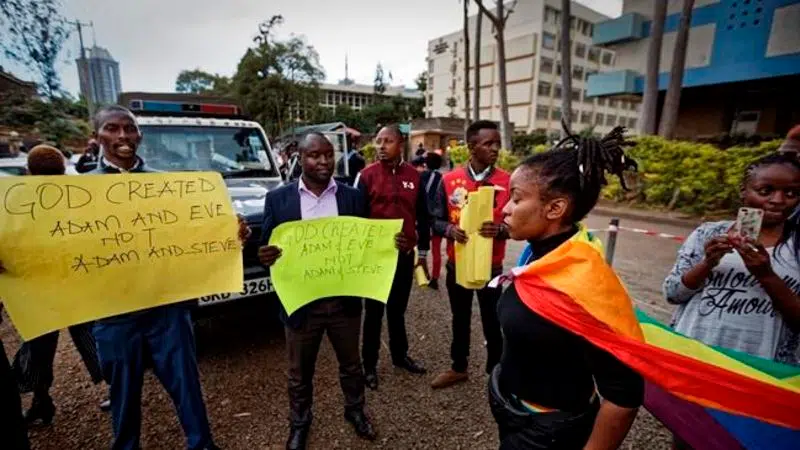
Kenyan court upholds laws criminalizing same-sex relations
NAIROBI, Kenya — Kenya’s High Court on Friday upheld sections of the penal code that criminalize same-sex relations, a disappointment for gay rights activists across Africa where dozens of countries have similar laws.
The judges’ unanimous ruling in the closely watched case was followed by activists’ vows to appeal. Many in Kenya’s vibrant gay community had hoped the court would make history by scrapping the British colonial-era laws and inspiring other countries in Africa to do the same.
Activists argue that the laws criminalizing consensual same-sex relations between adults are in breach of the constitution because they deny basic rights. The state should not regulate intimacy between gay couples, they say.
